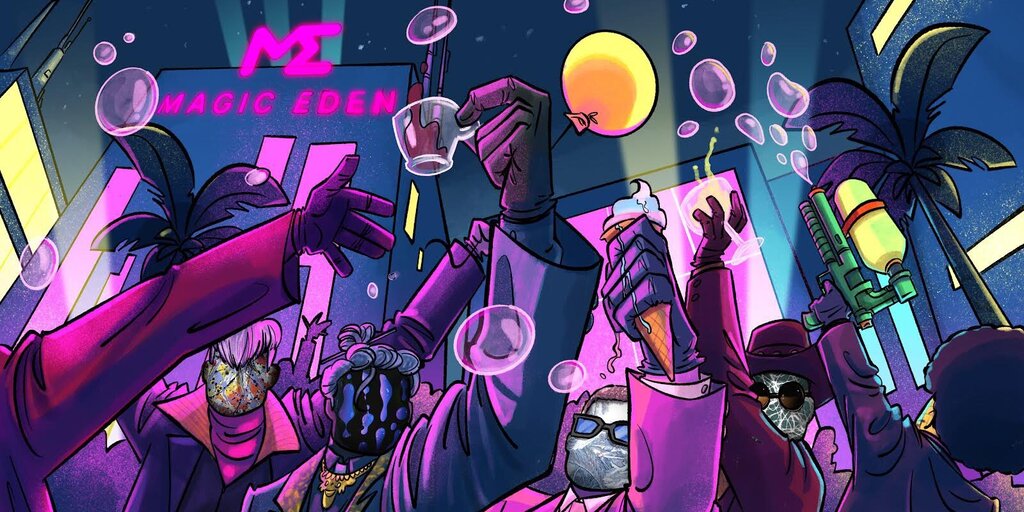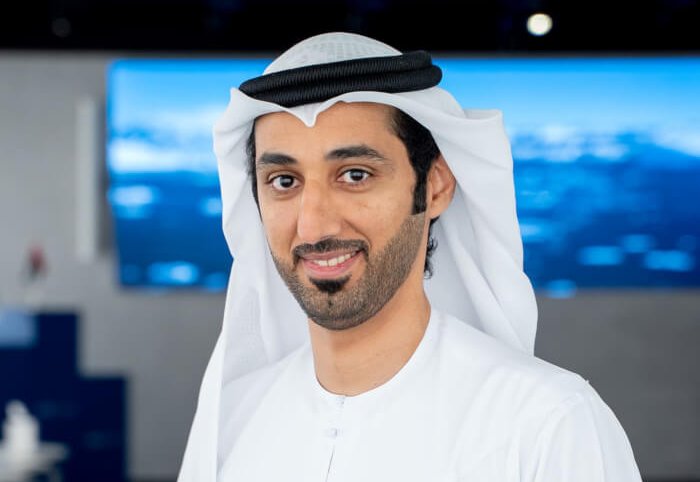Will crypto really solve science’s biggest problems?
The DeSci landscape
https://twitter.com/UltraRareBio/status/1526613325726945286/photo/1
An ineffective peer review process, the fact that renting a research paper for 48 hours can cost over $30, and that researchers spend more time applying for research grants than actually doing science are just some of the consequences of the larger problem of mismatched incentives among scientific research institutions around the world.
In the midst of the recent global pandemic, the blockchain and biotechnology communities sought to address these funding disparities and joined to start the Decentralized Science (DeSci) movement. While it may still be difficult to imagine how diverse groups of people in Discord servers could change the game for scientific funding and publishing, it is clear that blockchain’s inherent properties make an interesting case for why this could work.
What does blockchain have to do with synbio?
For a long time, blockchain’s applications in bio had been limited to securing data such as genome analyzes and medical records in an immutable and decentralized way. However, less than a decade after the creation of EthereumETH, we can see DAOs leveraging NFTs and smart contracts to align people’s incentives and ultimately achieve a clear goal.
Now, to get a better understanding of how this all works, let’s first start with what this ubiquitous acronym means – DAODAO. It stands for Decentralized Autonomous Organization. Think Kickstarter on steroids: a group of people coming together online to move the needle on a specific cause. Their task is not to solve the problem themselves, but to best support other people to do so. They “crowdfund” the DAO by issuing a type of coin (commonly known as a token) for the organization. Depending on the terms of the “smart contract” under which the DAO operates, anyone who buys their token may have some decision-making power, such as voting for which projects to fund.
Biotech DeSci’s central thesis is that most biotech holding companies are not interested in investing in risky projects with a small ticket size ($100-200k). Still, if we want 10 times more innovation as humanity, this is precisely the kind of project we can’t let get stuck, either in the NIH grants valley of death or in the VC catch-22 of needing funding to do science and needing science to get financing.
Biotech DAOs focus on helping these types of projects take aim at these moonshot ideas. In exchange, the DAO token holders receive a fraction of the IP the researchers develop. This is when NFTs become much more than just monkey pictures and start to become certificates of ownership over something like a new method of scaling up algae production or a drug for a rare disease (to give a couple of examples).
Another hope for IP NFTs and DAOs – Paul Kohlhaas (Molecule co-founder) notes – is that larger biotech companies can review the portfolio of specific DAOs and even their patents. Then, if they happen to find something interesting, they can either seek collaboration with the researchers and the DAO or look for licensing or purchase IP. Especially the latter will benefit everyone who participated in the process of creating that IP, including of course token holders.
“Even if the market for these tools is not that big, owning a part of the IP can be extremely valuable. It’s a feeling of making history” – Niklas Rindtorff, co-founder of LabDAO
Also, what if even the apparently failed projects could bring something to the table too? While traditional funding methods do not encourage publishing disproved hypotheses, DeSci can make this information available to others to learn from previous trials.
What do all these DAOs actually do?
After recent events in the crypto world, it’s reasonable to be skeptical of anything involving similar technology. But at the same time, it is fair to keep in mind that science itself, especially biotechnology, can be a process with very long cycles of iteration.
That said, one of the most famous DAOs in the space is the lifetime-focused VitaDAO, with more than 200 projects raised, $3 million invested in research, and 1,300+ token holders, including PfizerPFE. Their token, $VITA, can be purchased through cryptocurrencies such as ETH with a market cap of $20 million.
The two projects listed on VitaDAO’s website started in April and June this year, and both have a timeline of two years. The maximum return for token holders remains to be seen, but the DAO is already doing its job of sourcing projects, voting on them and funding them.
“VitaDAO did something that Pfizer has been trying to do for years: create an open innovation ecosystem. Think of the bureaucracy inside Pfizer. This is the beginning of biotech DAOs – we’re just getting started” – Paul Kohlhaas, Co-Founder and CEO by MoleculeDAO.
Now, not all of DeSci is about extending our lifespan. Take, for example, ValleyDAO, which was started this year by Albert Anis, a Belgium-based synthetic biologist, to address planetary health: addressing the existential threats of climate change and food security and ultimately creating a fairer and more just bioeconomy. So far, they have approved one project by a researcher from the Imperial College of London and published it on the Molecule Discovery platform.
Molecule is also DAO. Most importantly, it is the marketplace for research-related IP. They developed IP NFTs to connect academics and biotech companies with fast and easy funding, allowing patient, researcher and investor communities to directly manage and own research-related IP. They work with DAOs like Vita, Valley, Psy (psychedelic medicine) and LabDAO (network of wet and dry lab services).
Another goal of the DeSci movement is actually to fund projects that were previously neglected for being controversial, or not having a big enough market, or simply not of interest to traditional funders (see the image below—curated by Jocelynn Pearl and Dani Elyse—for a more complete overview of the DeSci landscape).
For example, Vibe Bio addresses the much-overlooked problem of the lack of research into rare diseases. Co-founder Alok Tayi’s daughter was born with a rare disease, which pushed him to create a DAO that has now been backed by investors such as Garry Tan (current YC president) and Balaji Srinivasan (former general partner at a16z and former CTO of coinbase). In addition, Vibe Bio provides an option for parents and patients to fund DAO as per their requirements.
“Let patients decide what to fund, not Wall Street” – Alok Tayi, founder of Vibe Bio
Looking beyond the walls
First, it’s fair to question the sustainability of joining thousands of people, from all over the world, on a Discord server. Also, crypto has become popular among those seeking quick and easy money, so the question is: how serious can all these people be in solving biotech’s biggest problems? And more specifically, what if someone just decided to buy the entire DAO? Where is the promise of governance there?
Molecule’s Tyler Golato reminds us that crypto is not the best place for independent thinking. “A lot of people use a DAO as an excuse for lack of governance,” he says. “But we’re not building Molecule from a crypto perspective, but from a meta-scientific perspective.” As a purist, he is open to working with any solution that makes sense. Ultimately, what Molecule is really trying to do is focus on bringing drugs from academia to the market.
In terms of ownership, the idea is to make different aspects of science (such as peer review and grants) separate and specialized communities; in other words, make them decentralized. Still, there’s nothing stopping someone from buying out an entire DAO.
Now, all the DAOs and technologies mentioned so far tend to generate a lot of data, and much of the DeSci movement would be for naught if there wasn’t a decentralized way to store that data. Well, luckily, the InterPlanetary File System (IPFS) and FilecoinFIL are two related technologies that aim to improve how digital content is stored and distributed. IPFS is a decentralized protocol for storing and sharing files, which allows users to access content based on the content address rather than the location on a specific server. This means that files can be distributed across a network of nodes, making it more resistant to censorship and improving performance by allowing faster and more efficient content delivery.
Filecoin is a blockchain-based storage network that incentivizes users to provide storage space for IPFS content by offering rewards in the form of Filecoin cryptocurrency. This creates a decentralized marketplace for storage, where users can buy and sell storage, and content creators can pay for storage without relying on a centralized storage provider.
Ultimately, DeSci is a tool for aligning incentives in science, and the people involved in creating these tools need to keep in mind what problem they are solving and for whom. We couldn’t have said it better than James Sinker, co-founder of OrangeDAO:
“Giving scientists more freedom to express their visions for the future and to tackle them – this reminds me of the ethos of Silicon Valley.”
Thanks to Sofia Sanchez for additional research and reporting on this article. I am the founder of SynBioBeta and some of the companies I write about, such as Vibe, Molecule and Filecoin, are sponsors of SynBioBeta Conference and weekly digestion.
Follow me on LinkedIn. check out my website.


